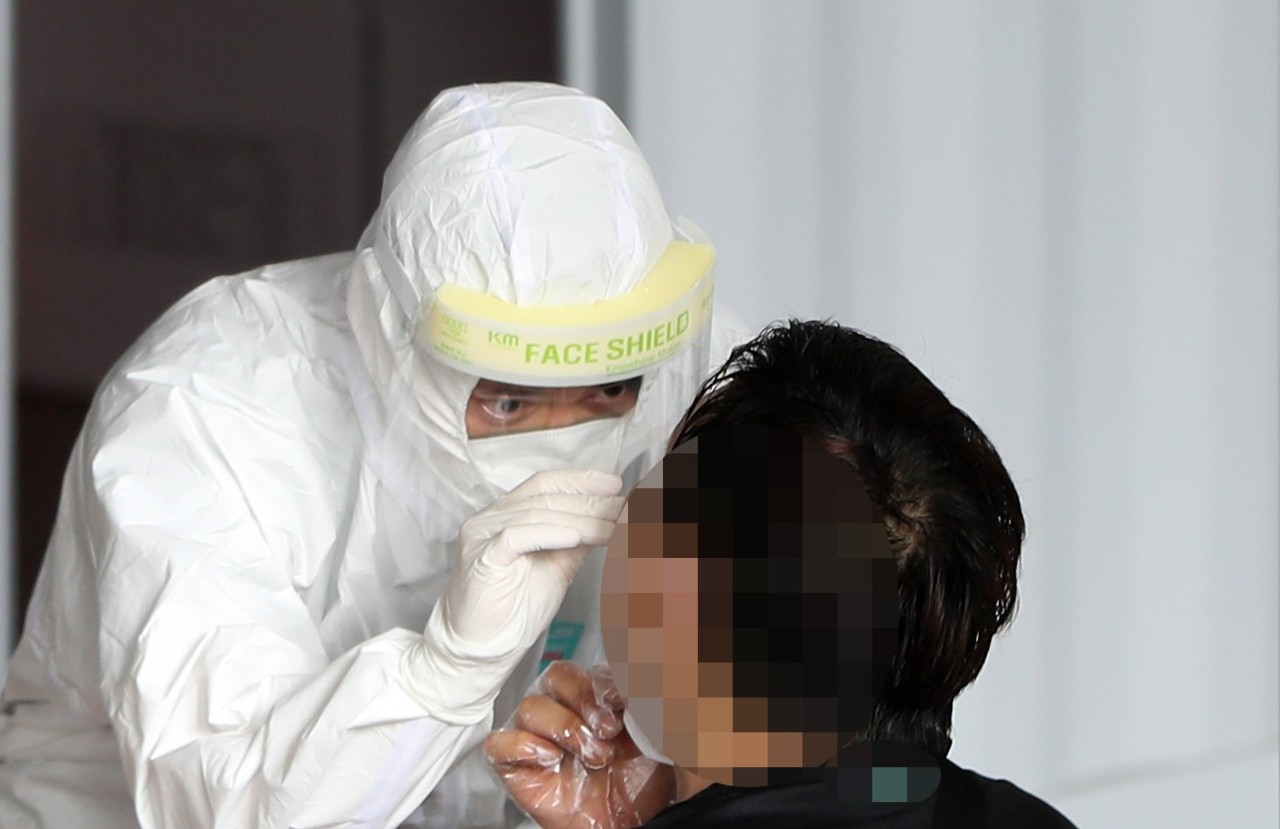S. Korea's new virus cases top 300, more stringent measures in store to regain control
By YonhapPublished : Aug. 21, 2020 - 10:28

South Korea's virus fight is reaching a critical phase as its daily new virus cases surpassed 300 for the first time since early March on Friday largely due to church-linked cluster infections in the wider capital area and other regions.
Health authorities may consider further upping anti-virus measures to the highest level in order to regain its grip on the COVID-19 pandemic amid mounting concerns about nationwide outbreaks.
The country added 324 more COVID-19 cases, including 315 local infections, raising the total caseload to 16,670, according to the Korea Centers for Disease Control and Prevention (KCDC).
Friday's tally marked the most since March 8 when the daily virus cases reached 367.
The number of daily infections has been in the triple digits since last Friday when 103 additional cases were reported, with about 1,900 cases being newly identified in the past eight days.
A resurgence in new coronavirus cases, mostly traced to churches, have been reported in Seoul and its surrounding Gyeonggi Province, home to half of the country's 51 million people.
Health authorities warned that the wider capital region should brace for another wave of the COVID-19 pandemic and that the country stands on the cusp of a nationwide outbreak.
In a sign that the virus is spreading across the nation, more virus cases have been newly added outside the greater Seoul area over the past week. Excluding the southern resort island of Jeju, 16 major cities and provisions reported new virus infections.
Of the newly identified local infections, 125 cases were reported in the capital city of Seoul, 102 from Gyeonggi Province and 17 from Incheon, just west of Seoul.
The southeastern port city of Busan reported eight additional infections. The central city of Daejeon reported six more cases, and four were reported from the southeastern city of Daegu and five from the southwestern city of Gwangju.
Health authorities said a surge in cases traced to a church in northern Seoul and infections tied to a massive weekend rally in central Seoul appear to have served as a catalyst in spurring the virus to spread nationwide.
Cases tied to the Sarang Jeil Church in northern Seoul, a new hotbed of the latest flare-up in virus cases, came to 676 as of noon Thursday, up 53 from a day earlier.
The Sarang Jeil Church-linked infections marked the largest after more than 5,000 virus cases traced to the minor religious sect of Shincheonji were reported in Daegu in late February and early March.
Health authorities also have been urging participants in the anti-government rally held on Saturday to immediately take virus tests regardless of showing symptoms. Some Sarang Jeil Church members took part in the rally.
But health authorities have been facing hurdles in tracing potential cases as some of protesters had traveled to Seoul from other cities, hundreds of members of Sarang Jeil Church refused to get tested, and the church provided an inaccurate list of its members to health authorities.
Cases linked to the weekend march came to 60, of which 33 patients are affiliated with the conservative church. At least 18 patients who joined the rally do not have links to the church.
The spiking virus cases are likely to present tough challenges to the country over whether to impose more tougher anti-virus measures.
Alarmed by soaring virus cases, South Korea raised the level of social distancing in Seoul and Gyeonggi Province on Sunday by one notch to Level 2 in the three-tier system for two weeks.
Starting Wednesday, the measure was expanded to Incheon.
Indoor meetings of 50 or more people and open-air gatherings of 100 or more people are banned in principle. So-called risk-prone facilities, including karaoke rooms, clubs, PC cafes and buffets, have been ordered to shut down.
The government has been cautious about raising the level of social distancing to Level 3 as doing so has far-reaching social and economic impacts.
The highest anti-virus curbs can be issued when the number of daily virus cases reaches a two-week average of 100-200 and the doubling of new COVID-19 cases occurs more than twice a week.
If the level is raised, gatherings of 10 or more people will be banned, and offline school classes will be suspended.
The country reported nine imported cases, with three cases coming from the United States and another three from the Philippines.
Cases coming in from overseas rebounded back to double-digit numbers since mid-June for about a month, but such infections recently slowed.
South Korea reported two more deaths, raising the tally to 309. The fatality rate was 1.85 percent.
The total number of people released from quarantine after making full recoveries stood at 14,120, up 57 from the previous day.
The country has carried out 1,754,123 coronavirus tests since Jan. 3. (Yonhap)


![[Herald Interview] 'Amid aging population, Korea to invite more young professionals from overseas'](http://res.heraldm.com/phpwas/restmb_idxmake.php?idx=644&simg=/content/image/2024/04/24/20240424050844_0.jpg&u=20240424200058)














![[KH Explains] Korean shipbuilding stocks rally: Real growth or bubble?](http://res.heraldm.com/phpwas/restmb_idxmake.php?idx=652&simg=/content/image/2024/04/25/20240425050656_0.jpg&u=)

